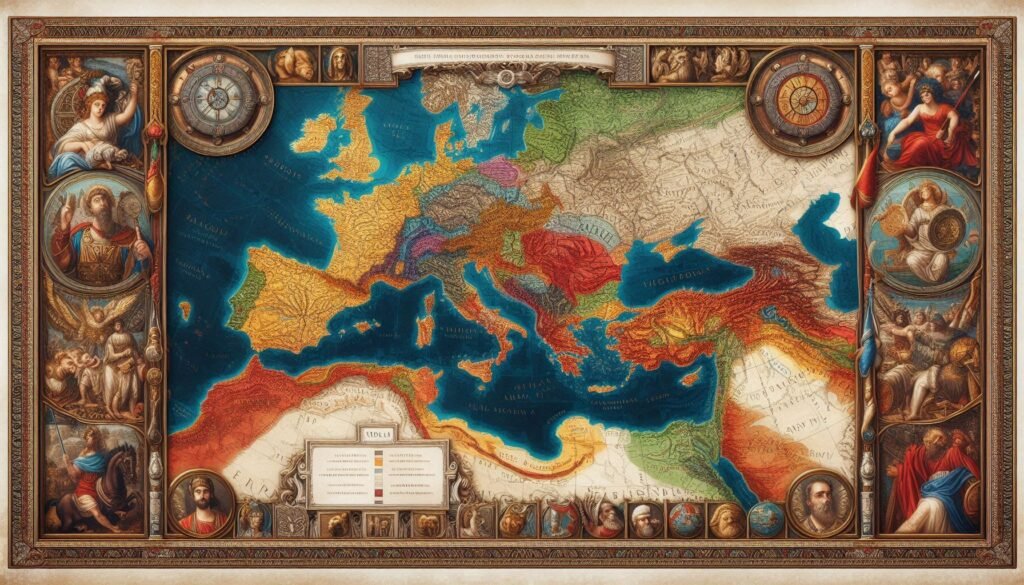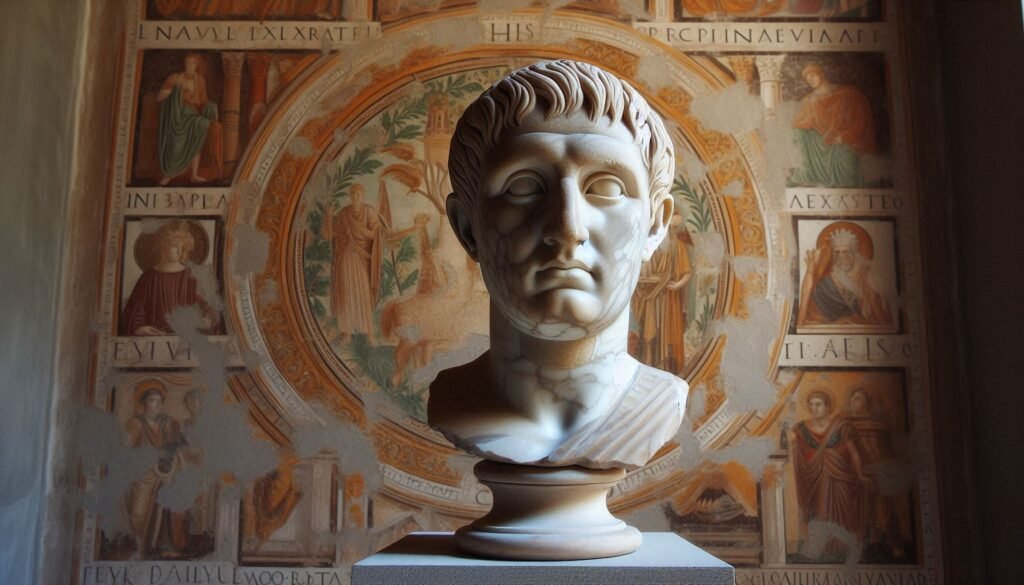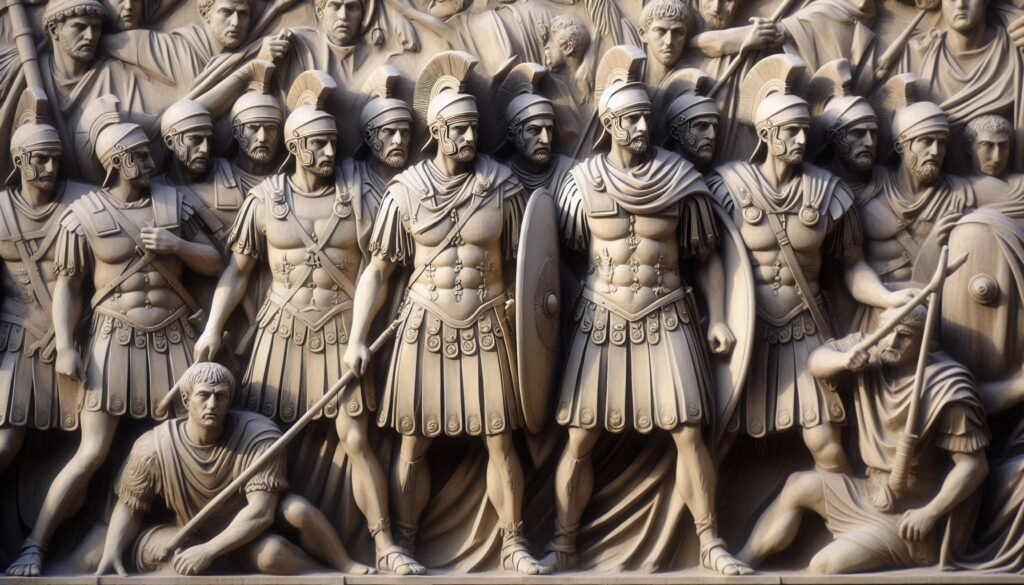Ancient Roman Culture: Empire of Order, Power, and Legacy
From the blood-soaked sands of the Colosseum to the marble corridors of the Senate, from bustling marketplaces to sacred temples, Ancient Rome was a civilization of paradoxes: brutal yet sophisticated, traditional yet revolutionary, pragmatic yet visionary. Roman culture was not simply an extension of Greek thought—it was a living, evolving force that reshaped the known world and left its mark on everything from law and language to architecture and religion.
Geography and Foundations of Roman Identity

Rome grew from a humble settlement along the Tiber River into an empire that spanned three continents. Its geography helped define its destiny: the fertile lands of Italy, natural defenses, and central position in the Mediterranean made expansion both possible and practical. But Roman identity was forged not only by conquest—it was grounded in a deep sense of patria (homeland), duty, and mos maiorum (the customs of the ancestors).
Law, Citizenship, and the Roman Order
At the heart of Roman culture was a commitment to law and order. The Romans believed in structure, hierarchy, and civic responsibility. The Twelve Tables, Rome’s earliest codified laws, laid the foundation for Roman justice—and for modern legal systems across the globe.
Citizenship was a coveted status, conferring rights, protection, and identity. Over time, Rome expanded this privilege to conquered peoples, integrating them into its fold and reinforcing loyalty. It was not ethnicity, but participation in Roman life, that made one Roman.
Religion and Divine Authority
Religion in Rome was less about personal faith and more about ritual, duty, and state stability. The gods were many, inherited from the Greeks and reshaped into uniquely Roman forms. Jupiter, Mars, Venus, and Minerva were part of daily civic life, their favor invoked for everything from war victories to harvests.
The emperor himself, starting with Augustus, became divinely sanctioned, often deified after death. Public rituals, sacrifices, and festivals like Saturnalia bound the people together and reaffirmed their connection to divine order.
Arts, Literature, and Roman Realism

Roman art and literature were deeply influenced by the Greeks but shifted toward realism and functionality. Roman sculpture captured the wrinkles of age and the weariness of power; Roman architecture prioritized utility and grandeur.
Writers like Virgil, Ovid, Horace, and Seneca crafted epic poems, biting satire, and profound philosophical works. Historians such as Livy and Tacitus not only chronicled events—they wrestled with the moral implications of empire and decline.
Society, Class, and Roman Daily Life
Roman society was highly stratified:
- Patricians held aristocratic privilege.
- Plebeians were common citizens.
- Slaves and freedmen performed much of the labor that powered Rome.
Yet Roman life was vibrant and varied. Citizens gathered in baths, forums, amphitheaters, and temples. Roman family life centered around the paterfamilias, and women—though often confined to domestic roles—could wield influence behind the scenes, especially in elite circles.
Engineering, Architecture, and Urban Genius
Rome’s cultural legacy is written in stone and concrete. From the roads that spanned the empire to the aquaducts that brought fresh water into its cities, Roman engineering remains a marvel.
Structures like the Colosseum, Pantheon, and Roman Forum reflect a blend of technical prowess and symbolic power. Urban planning, sewage systems, and heating technologies showcased a civilization obsessed with order, efficiency, and spectacle.
Military Power and Cultural Transmission

The Roman military was more than a fighting force—it was a vehicle of cultural diffusion. As legions moved across Europe, Africa, and Asia, they brought Roman laws, language, and customs with them. Roads, towns, and infrastructure followed.
Veterans were rewarded with land, spreading Roman identity deeper into conquered territories. Latin, Roman gods, architecture, and legal systems followed wherever the eagle standard marched.
Legacy of Rome: From Empire to Eternity
Rome’s empire eventually fell—but its culture never did. Christianity, once persecuted, became the empire’s religion and transformed Europe. Roman law shaped future republics. Latin evolved into the Romance languages. Architecture, literature, and governance carried the Roman stamp for centuries.
Today, echoes of Rome are found in our cities, languages, legal systems, and collective imagination. The story of Rome is not just one of emperors and wars—it is the story of a cultural blueprint that continues to shape the world.
“What we do in life echoes in eternity.” – inspired by Roman ideals
